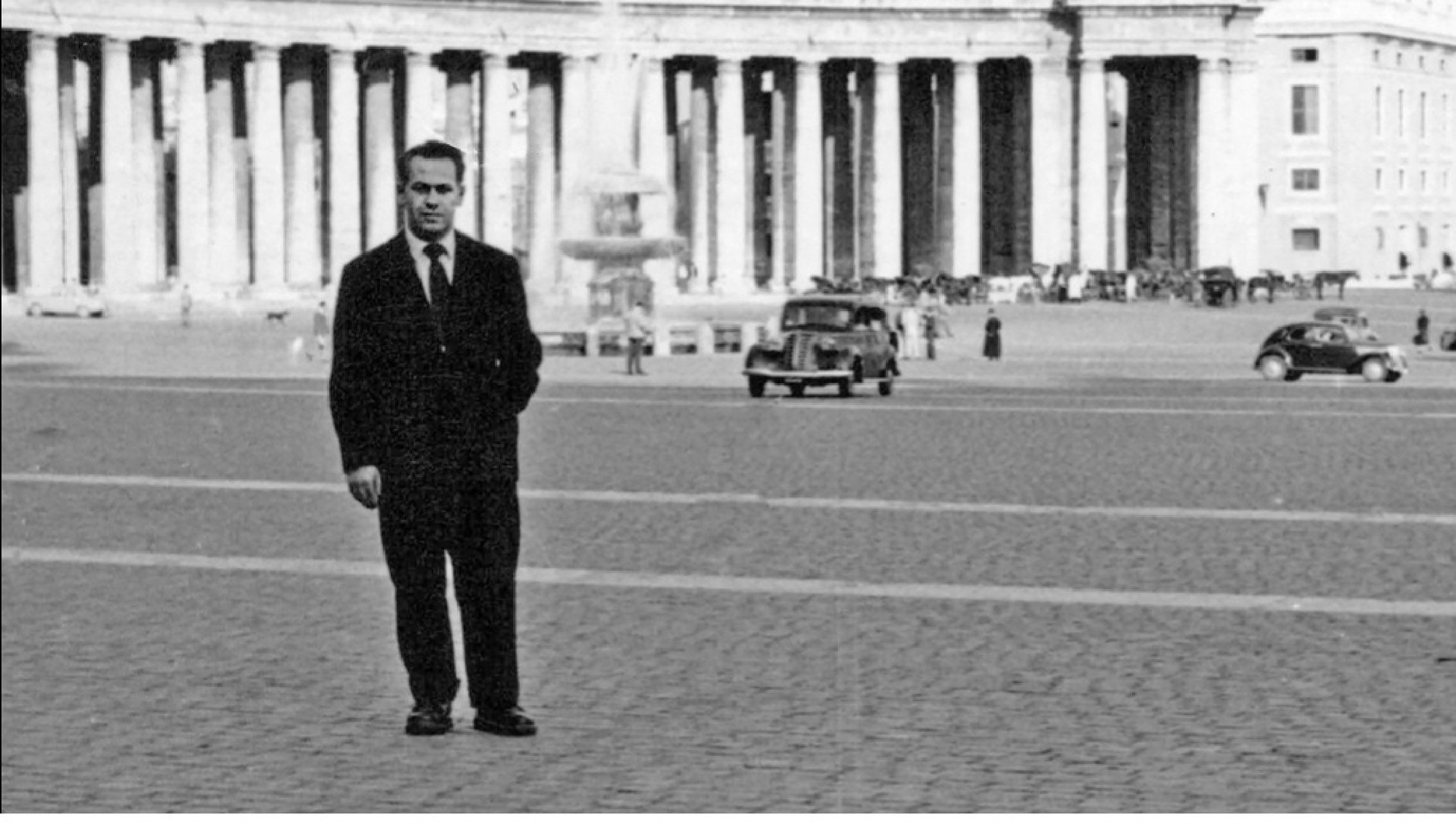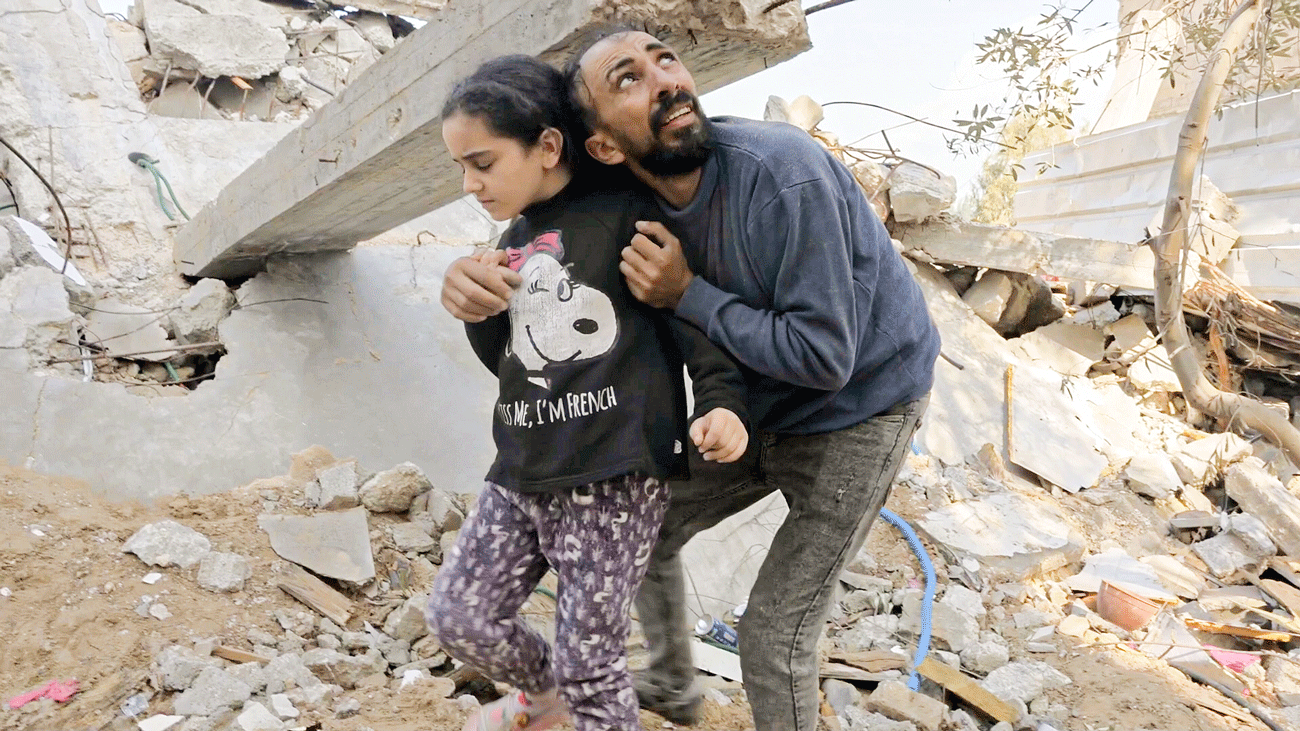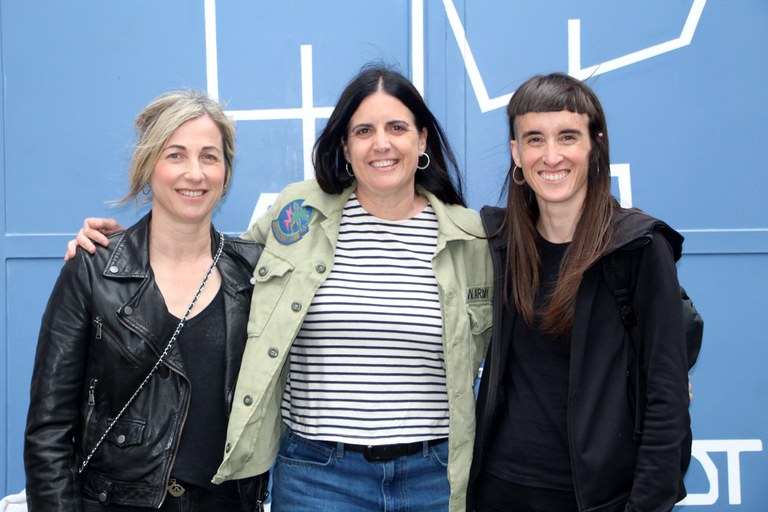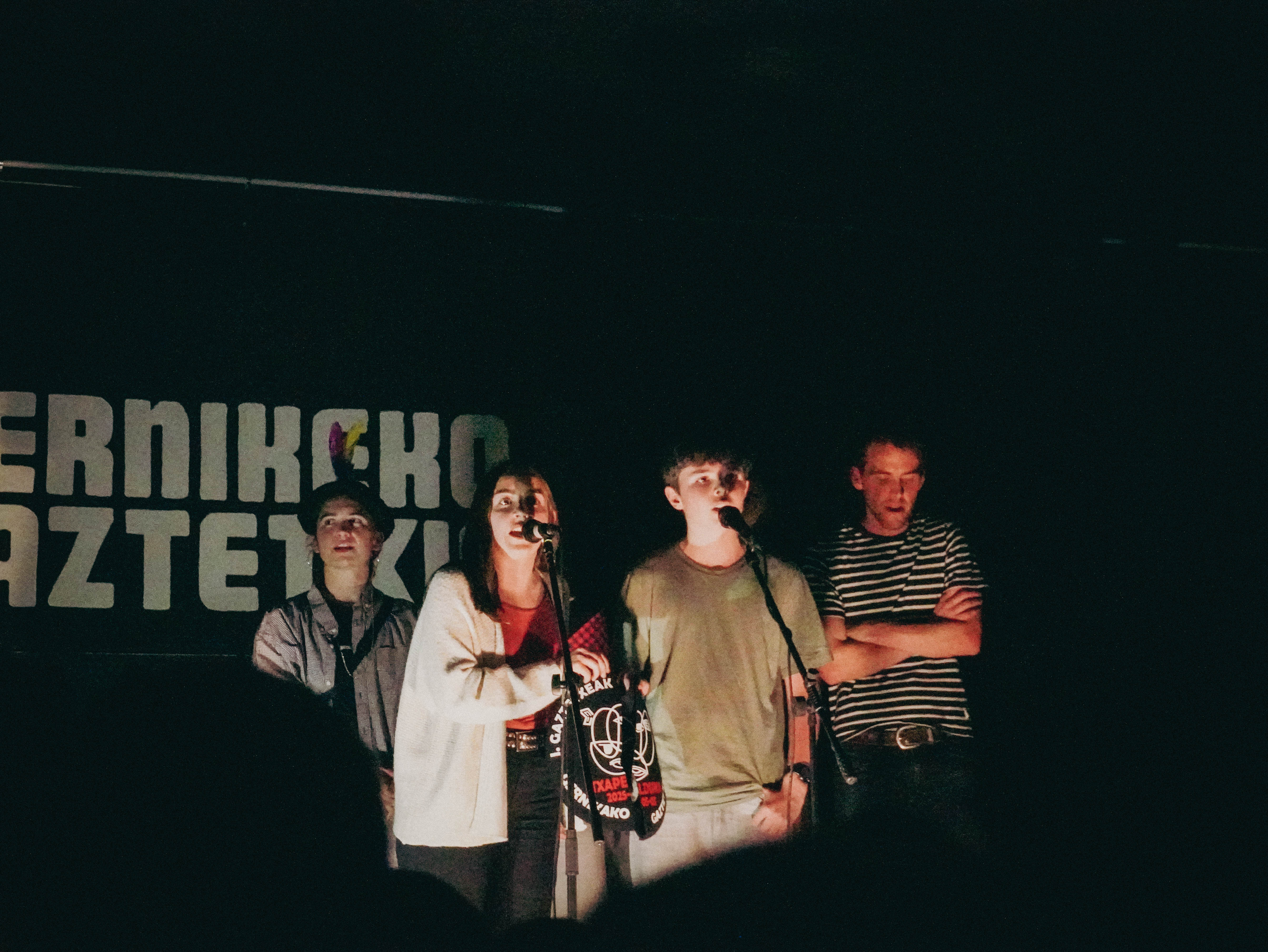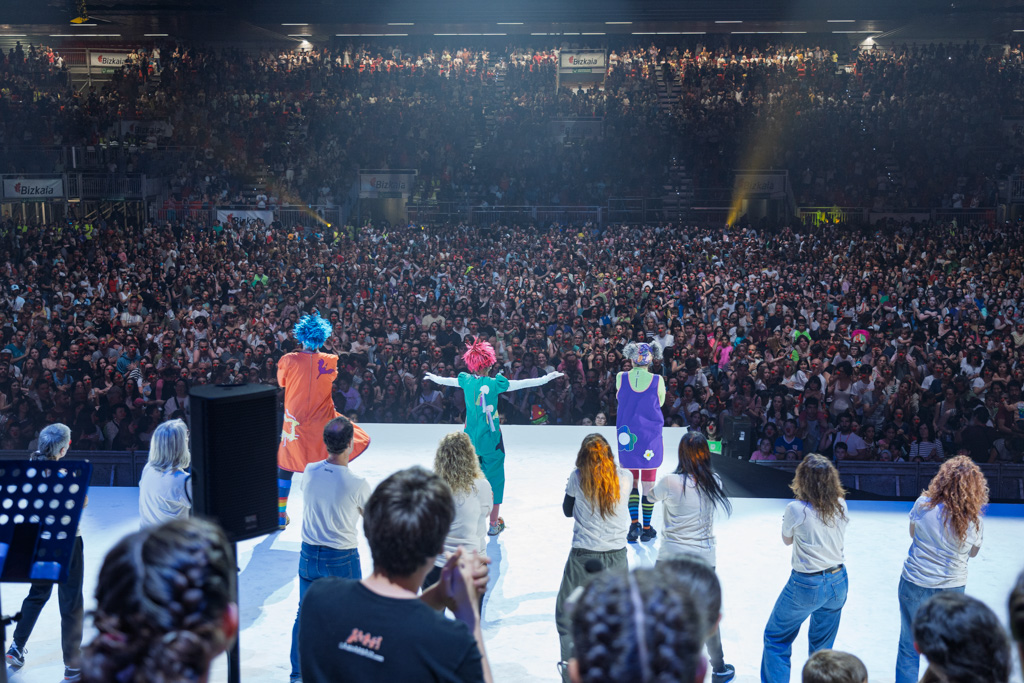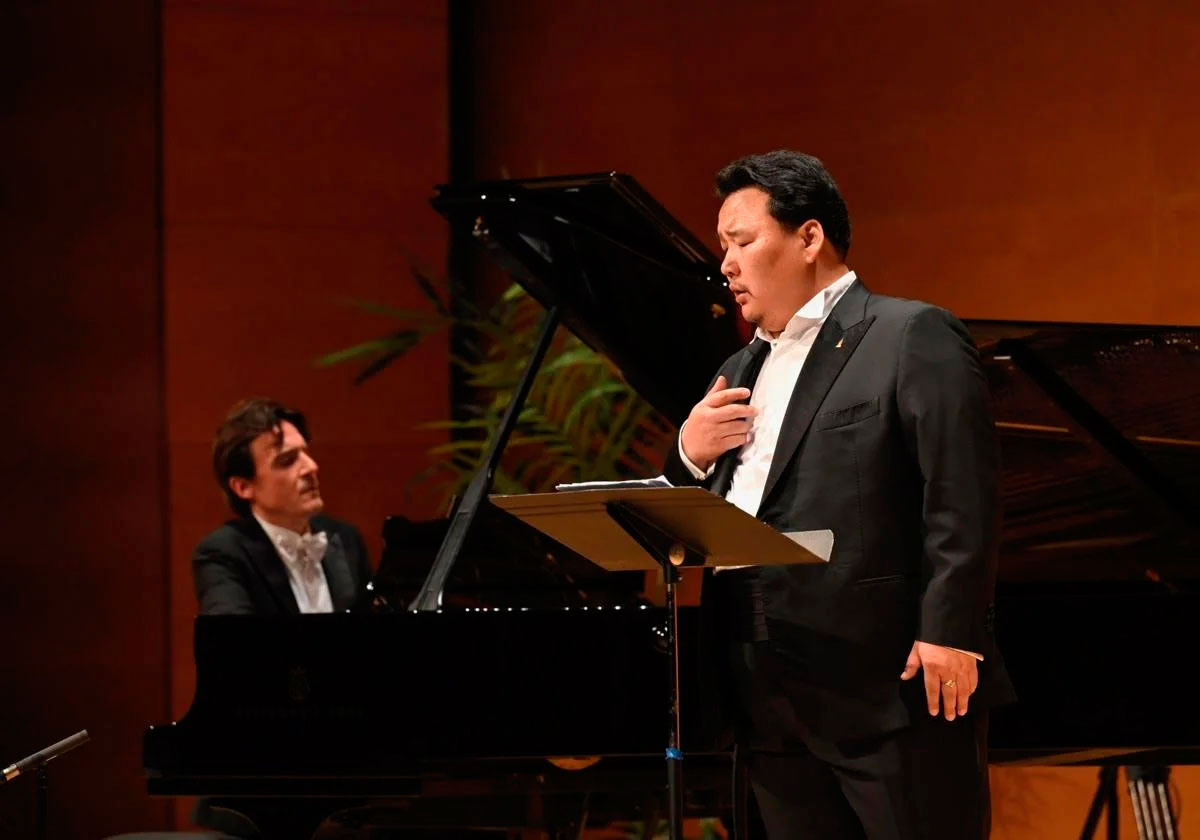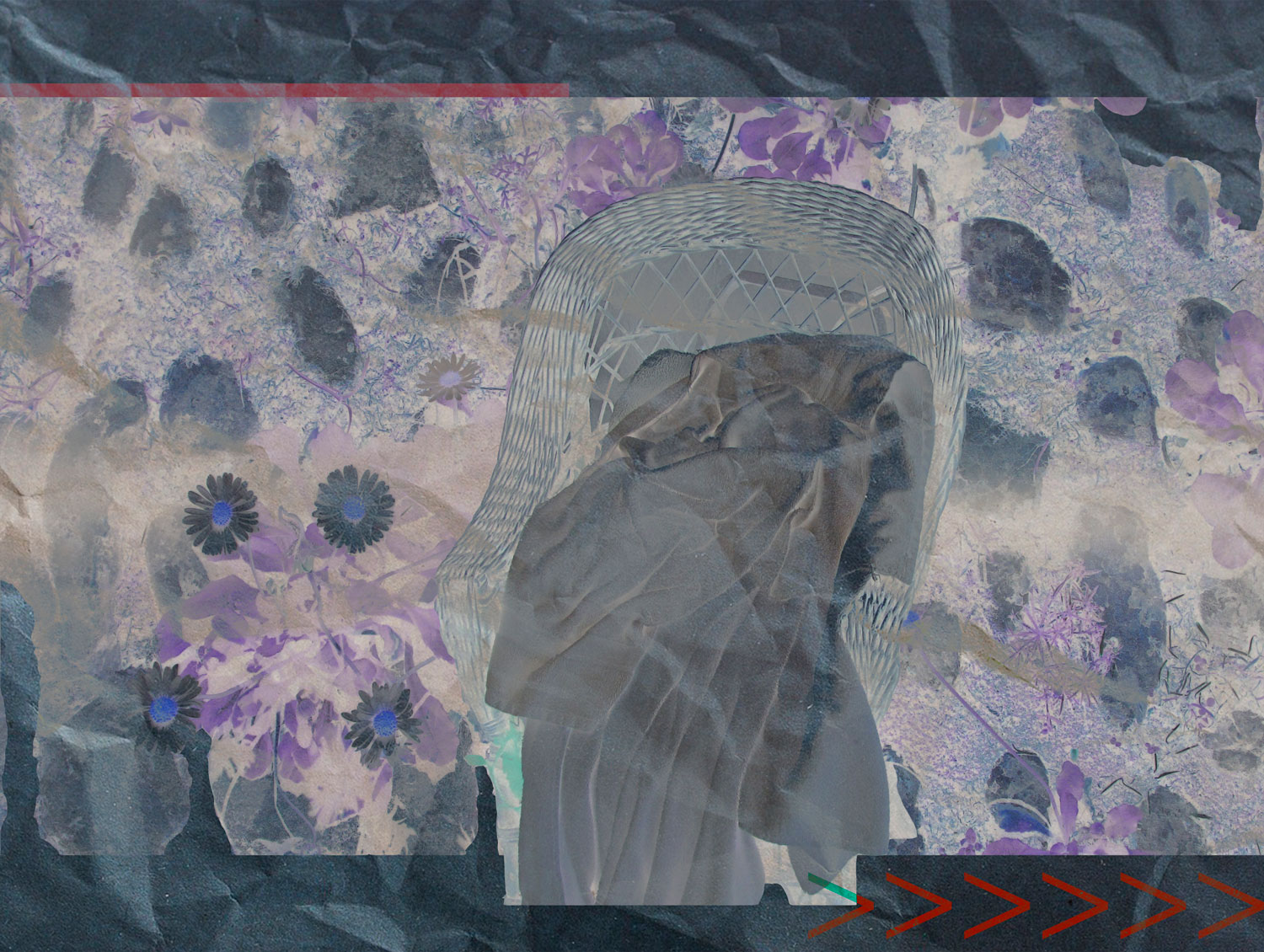"The book I created because maternity gave me a slap."
- The illustrator Amaia Arrazola (Vitoria-Gasteiz, 1984) studied Advertising and Public Relations at the Complutense University of Madrid. After working in an advertising agency, he moved to Barcelona, where he has been living for ten years. In October 2018, she was a mother and has confessed that her universe had broken into a thousand pieces. He has made a claim for silent motherhood in the illustrations book The meteorite (Lunwerg Editors, 2020) that he has just published.

They say drawing is a way to express it to you. Since when?
Always. When I was a kid and I was playing with my sisters to shop in the stores, we drew the products I had bought. We had everything: fruits, vegetables, dresses and even the phones with which we were called. I always liked everything related to drawing, painting and creativity. But I had never imagined that my profession was this! I would say the boom came when I was 22, when I went to Paris to study for a year. I remember being presented there to an illustrator, and something within me woke up. “Can you live drawing?” I asked.
Although you were born in Vitoria, you have spent the last years in Madrid and Barcelona. The Catalan capital is home to many creators.
For me, Barcelona is a house. There I landed after eight years studying in Madrid and working in the field of advertising. And Barcelona welcomed me perfectly. I met a number of people who had my own intentions and embraced me, who were painters or illustrators, and we started a new path together. We created a coworking in which the word coworking didn't exist: well, we crossed synergies and we came together to protect each other. We saw that we were stronger together than we were alone. Today we are not under the same roof, but they are the family Guim Ó, Conrad Roset, Chamo San… Barcelona is also sea, warmth, light, terraces, laughs, projects, culture, festival, art… my daughter is Catalan.
Do you intend to stay?
I am still here for the moment. My partner is from the Canary Islands and we have always thought that Barcelona is not bad as an intermediate residence. What we do know is that right now, we need an urban space to live, to have things that allow us our work: me as an illustrator and he as a painter. But it is true that I am increasingly lacking in mine: Euskal Herria, green… Roots, in the background.
The economic crisis first and the pandemic later. Has it cost you to live from enlightenment?
Well, I'm a daughter of the crisis. I haven't known the years of abundance. I have therefore developed my profession in this time of difficulties and I know nothing else. These are the rules of my game. But yes, of course, it's hard. Fortunately, I have had the immense support of my family and that has been inevitable in turning art into my profession. When I decided to leave the indefinite contract I had to come to Barcelona in an advertising agency in Madrid, they believed in me and trusted in my career. And in times of a pandemic, well -- you have to keep doing things, I can't stand.
In this society that has the habit of tagging everything, you escape and feel comfortable in the broad umbrella of your creator, right?
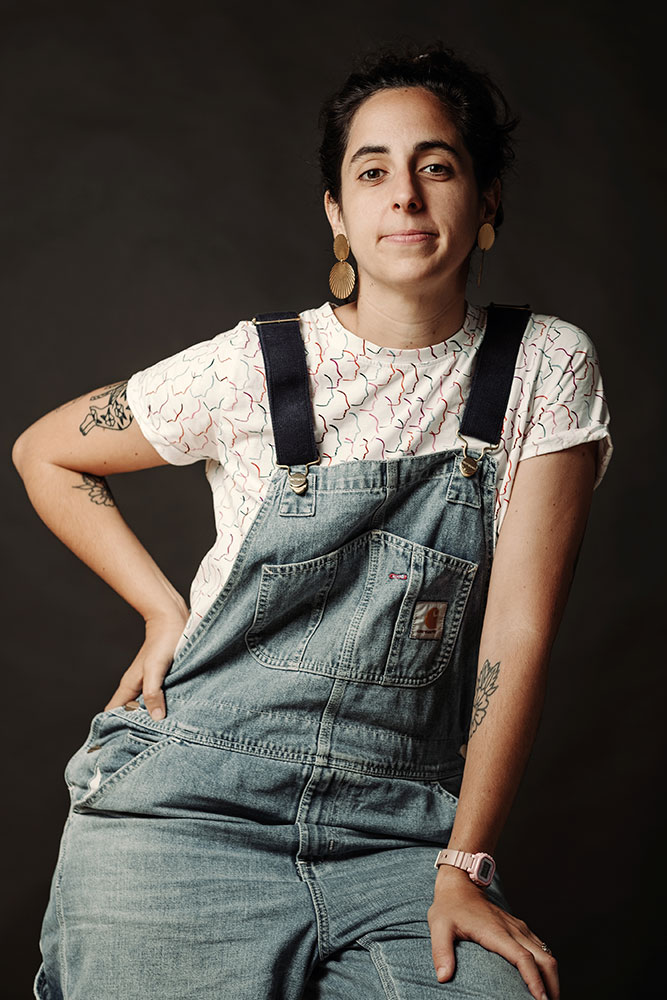
We live in a very individualistic society. And honestly, I think good things happen in the community. I started my journey with a group of friends. Everyone had their way but together we were stronger. Today, I collaborate permanently with people from different creative backgrounds, and that enriches me.
On the contrary, it is common for creators to claim this difference between labels. What does that freedom bring you? What difference does it make you?
I think there are people who are betting on working deeply in one branch, but it's not my case, I need to change, try new things and feel movement. I feel cross-cutting in that sense. I love creativity in its different expressions, I love to illustrate a textbook written by someone else, like making a book from scratch. I enjoy the orders when they're interesting, of course. I love muralism, large-format painting, ceramics, poetry or typography. I don't know, I couldn't identify myself with a single label, because it would make me really sad to lose the rest.
You said you're a mother. Let's talk about your second birth: You've published the book The meteorite in the midst of a pandemic. When and how did the idea come about?
When I started to see what it meant to have a daughter, I decided to make the book. Above all for two reasons. On the one hand, as a cry: I needed to say “Here I go!” and claim to the four winds that my maternal identity did not overshadow the rest of identities. On the other hand, because motherhood had given me a slap. I didn’t expect so many emotions, experiences, sorrows, petitions, fears, loves… “Why didn’t you explain it to me before? How is it possible not to have news of this?” I thought. I began to examine it myself and saw that yes, there were reports of mothers in this sense. I found the wonderful book of Esther Vivas Disobedient Mom (Disobedient Loves), and also the book of Jane Lazare Nudo maternal (Amaren traboa) and several poems of Sylvia Plath. Recently, mothers of Katixa Agirre have not read and I love reading women who have been mothers… But honestly, little has been written about the maternal experience and I decided to do so. Why not?
To what extent do you think motherhood is idealized?
It occurs in many aspects related to women, and, of course, also in motherhood. Romanticism and idealization about being a mother predominates: tears of happiness, “the best day of your life”, maternal instinct… And then there are all the obligations; maternal energy, which is willing to sacrifice everything for its children, always there, with strength… And of course, we are asked to return to work after four months of maternity leave, leaving it in the children’s school and beyond! Being a mother causes great confusion in our lives. It's a meteorite. And that authentic motherhood isn't sold, because it shows a dark view of the woman who doesn't produce the pleasure of Instagram.
Is the meteorite, therefore, a book claiming real motherhood?
The truth is, at first I didn't want to make any claim, I just wanted to tell you what I had experienced. I think it's hard enough to be counted. But beware, I always say that I just tell my motherhood, I don't make any suggestions because I'm no one who does it. I am not a specialist in this area. Moreover, the book begins by saying “Dear Amaia…”. I mean, I'm talking to myself, to an Amaia who didn't know what was on top two years and nine months ago. But I'm aware that my testimony can be useful for other women who feel lonely. Knowing that you are not the only one and seeing that what you live is not strange, helpful and healthy.
How has motherhood affected you in your career?
Totally. Above all, the first year after half. In many ways. On the one hand, I suddenly lost all my mental and physical space to create. My job is to draw, to create and to paint, and when Ane was born, I had no chance to think about anything. Of course, my maternity is marked by my personal context, because my partner and I are not from Barcelona, we do not have a family network nearby. We were all three of us alone and the space to work was reduced from one day to the next. Working or thinking about doing a job was impossible for me with the baby in my hand.
On the other hand, my work underwent an unexpected transformation. There are already works that are not compatible with Ane, especially murals. Large-format painting takes hours, a lot of dedication, physical and mental effort: walking up and down on a scaffold, driving a cave, being away from home for three days… these are things I cannot do today. I hope I can recover it in the future, because I loved it. At the moment I am working on a study, on smaller projects, but not important.
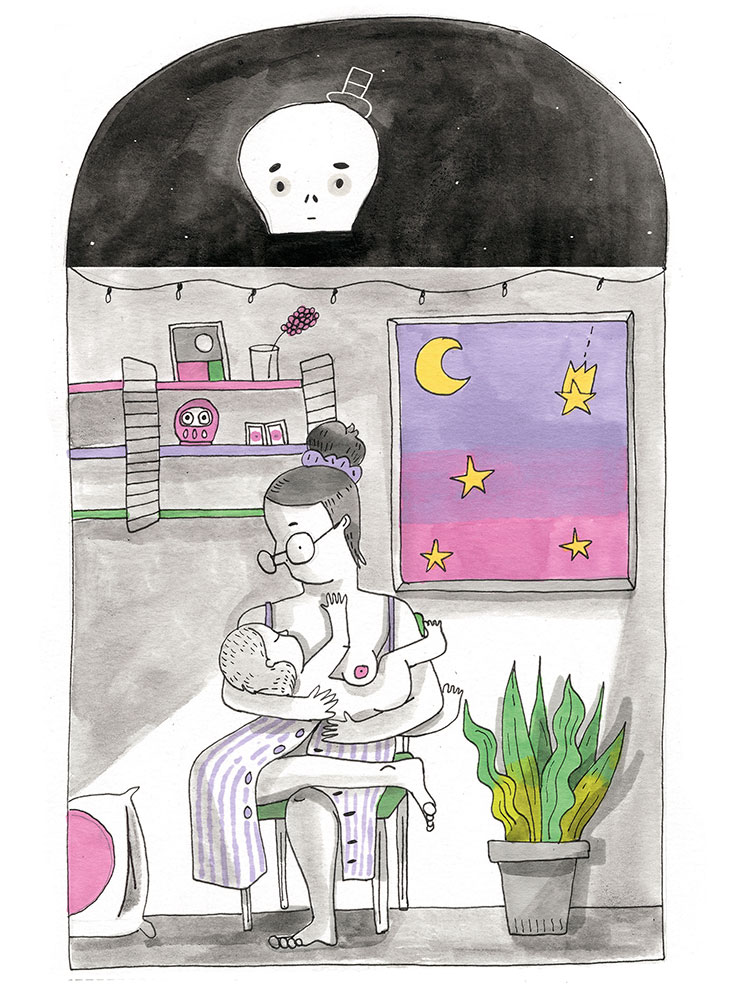
What do you think about the reception of the book?
I'm very happy. I have recently been confirmed that the second edition has entered the machines. Imagine that I love this. And also the answers I have received. Social networks have that, they make the dialogue with what they read to you almost constant, both for good and for evil. Many women who have passed what I lived tell me that thanks to my book they have felt more protected. When a girl first sent me from Instagram a message to tell me about her delivery and delivery, I cried. It's exciting to connect with such a personal story with completely unknown people.
The foreword has been written by journalist Esther Vivas.
His book was a beacon for me. When I started reading, I understood so many things… I connected 100% to her speech. I am very glad that your book is so well received. You have to read it, whether it's a mother or not a father. I've always thought that not all of us will be mothers or fathers, but to the extent that we are children, we should connect more with these issues.
What projects do you have?
Of some cardboard activities that I did in the confinement with Ane [daughter], a game book has been created that I'm going to publish. Right now, that's the project that makes me the most excited. While we were at home, I took the milk cartons and created some puzzles for Ane. I also uploaded them to Instagram. It worked well, because at the time we were all there to entertain our children with the thirst for things like this. But it was a surprise that the beautiful publisher Flamboyant arrived, saying he wanted to publish it. It will finally come out in January!
BRN + Auzoko eta Sain mendi + Odei + Monsieur le crepe eta Muxker
Zer: Uzta jaia.
Noiz: maiatzaren 2an.
Non: Bilborock aretoan.
---------------------------------------------------------
Ereindako haziek ura, argia eta denbora behar dute ernaltzeko. Naturak berezko ditu... [+]
Euskadi markak, eraikuntza sektoreko ekonomiaren estrategian, “industrializazioa” mantrarako hitz gisa hartu duela jakinarazi berri du Eusko Jaurlaritzak. Etxebizitza publikoaren eraikuntzan industrializaturiko prozesu eta elementuak lan guztien %65a izatea... [+]
Last week, during the blackout, seeing ourselves vulnerable, we began to investigate many people in order to understand what happened: how does the infrastructure that transports electricity work? Why is it getting old? I am fascinated by the physical phenomenon of electricity... [+]
Aurreko tertuliako galderari erantzuteko beste modu bat izan zitekeen, akaso modu inplizituago batean, bigarren solasaldi honetako izenburua. Figura literarioaz gaindi, pertsonaia zalantzan jartzeko, edo, kontrara, pertsonaiaren testuingurua ulertzeko saiakera bat. Santi... [+]
Now that everyone has become more Franciscan than the Pope, it’s worth remembering our unsurpassed classics. There was one in the 17th century, his grace was Arnaut Oienart. And since we can’t immerse ourselves in all his works, today we will praise O.ten youth in... [+]
“We rehearsed, we showed it to the boys, we were there when they needed help for the grill, but then we never danced in the square or even crossed our mind.” Oihane Auzmendi Iturbe (Legazpiia, 1977) is a dancer of the dance group Roots, but for years he did not have the... [+]
Amartuvshin Enkhbat baritonoa
Pianoan: Stefano Salvatori.
Antolatzailea: OLBE.
Zer: Verdi, Mascagni, Leoncavallo eta Giordanoren operen ariak.
Non: Bilboko Euskalduna Jauregian.
Noiz: martxoaren 29an.
Martin Martina and the Mystery of the Golden Comb
by Amancay
Gaztelañaga Batu, 2024
-----------------------------------------------------
Amancay Castañaga launches the mystery of Martín Martina and the golden comb accompanied by the illustrations of Alain Martínez... [+]
The annoying noise of the works of the neighbors has awakened me even today. I put my head on the pillow, and I tried to sleep for another twenty minutes, but there was no one to shut that drill down. I woke up and looked at the table of duties that I did at the beginning of... [+]









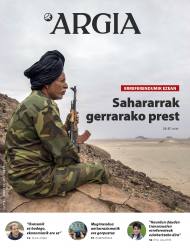


.jpg)
